
Filter News
Area of Research
- (-) Electricity and Smart Grid (1)
- (-) Materials (55)
- (-) National Security (13)
- Biology and Environment (14)
- Clean Energy (25)
- Computer Science (1)
- Functional Materials for Energy (2)
- Fusion and Fission (2)
- Isotopes (5)
- Materials for Computing (7)
- Neutron Science (37)
- Nuclear Science and Technology (8)
- Quantum information Science (2)
- Supercomputing (33)
News Topics
- (-) Cybersecurity (8)
- (-) Exascale Computing (2)
- (-) Isotopes (3)
- (-) Materials (26)
- (-) Microscopy (9)
- (-) Neutron Science (16)
- (-) Physics (13)
- (-) Polymers (7)
- 3-D Printing/Advanced Manufacturing (10)
- Advanced Reactors (2)
- Artificial Intelligence (11)
- Big Data (5)
- Bioenergy (8)
- Biology (6)
- Biomedical (4)
- Biotechnology (1)
- Buildings (3)
- Chemical Sciences (13)
- Clean Water (1)
- Climate Change (5)
- Composites (2)
- Computer Science (19)
- Coronavirus (5)
- Critical Materials (5)
- Decarbonization (4)
- Energy Storage (22)
- Environment (9)
- Frontier (2)
- Fusion (1)
- Grid (6)
- High-Performance Computing (5)
- Machine Learning (9)
- Materials Science (39)
- Mathematics (1)
- Molten Salt (1)
- Nanotechnology (18)
- National Security (15)
- Nuclear Energy (5)
- Partnerships (4)
- Quantum Science (6)
- Security (6)
- Simulation (2)
- Summit (4)
- Sustainable Energy (9)
- Transformational Challenge Reactor (3)
- Transportation (5)
Media Contacts
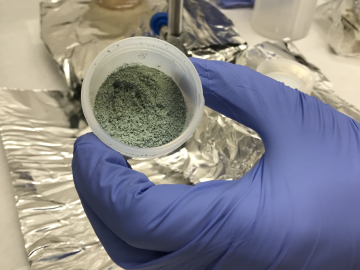
ORNL researchers used the nation’s fastest supercomputer to map the molecular vibrations of an important but little-studied uranium compound produced during the nuclear fuel cycle for results that could lead to a cleaner, safer world.

A study led by researchers at ORNL could help make materials design as customizable as point-and-click.

ORNL, TVA and TNECD were recognized by the Federal Laboratory Consortium for their impactful partnership that resulted in a record $2.3 billion investment by Ultium Cells, a General Motors and LG Energy Solution joint venture, to build a battery cell manufacturing plant in Spring Hill, Tennessee.
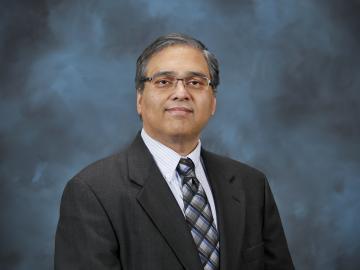
Muralidharan was recognized for “a highly prolific spirit of innovation in creating or facilitating outstanding inventions that have made a tangible impact on the quality of life, economic development and welfare of society.”

Three ORNL scientists have been elected fellows of the American Association for the Advancement of Science, or AAAS, the world’s largest general scientific society and publisher of the Science family of journals.
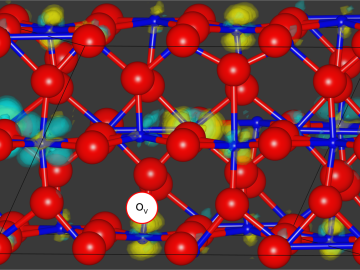
Neuromorphic devices — which emulate the decision-making processes of the human brain — show great promise for solving pressing scientific problems, but building physical systems to realize this potential presents researchers with a significant
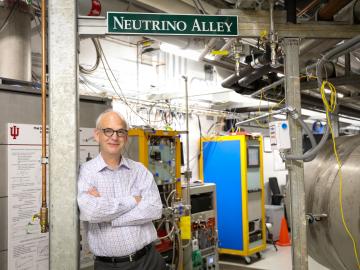
Marcel Demarteau is director of the Physics Division at the Department of Energy’s Oak Ridge National Laboratory. For topics from nuclear structure to astrophysics, he shapes ORNL’s physics research agenda.
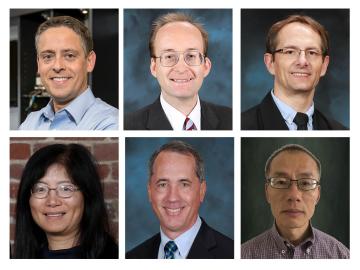
Six scientists at the Department of Energy’s Oak Ridge National Laboratory were named Battelle Distinguished Inventors, in recognition of obtaining 14 or more patents during their careers at the lab.
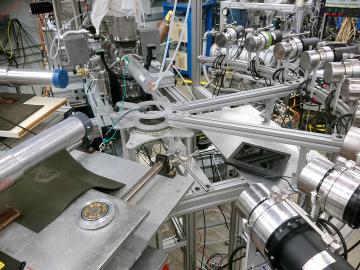
A new study clears up a discrepancy regarding the biggest contributor of unwanted background signals in specialized detectors of neutrinos.
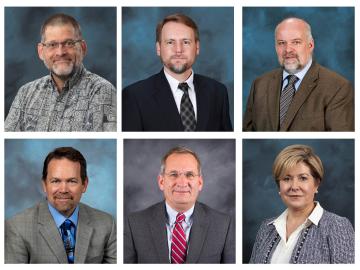
Six ORNL scientists have been elected as fellows to the American Association for the Advancement of Science, or AAAS.


